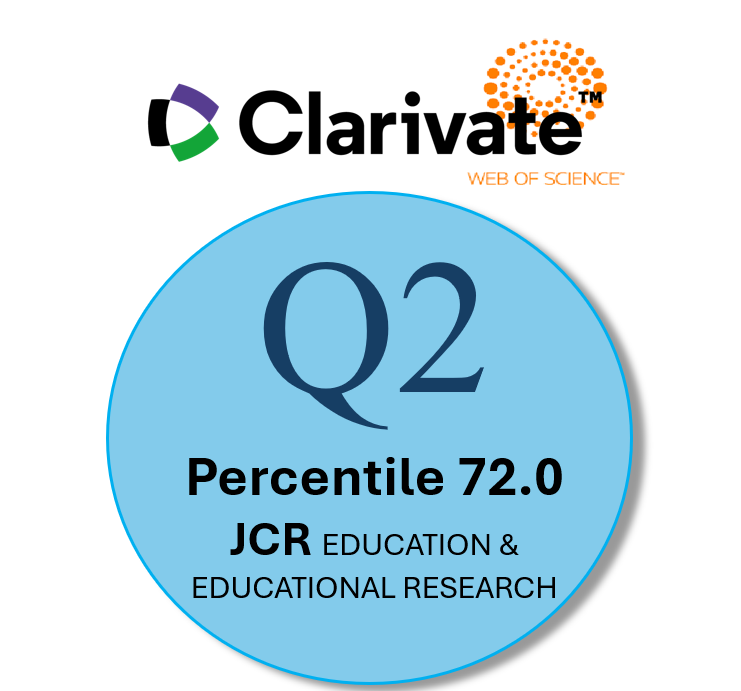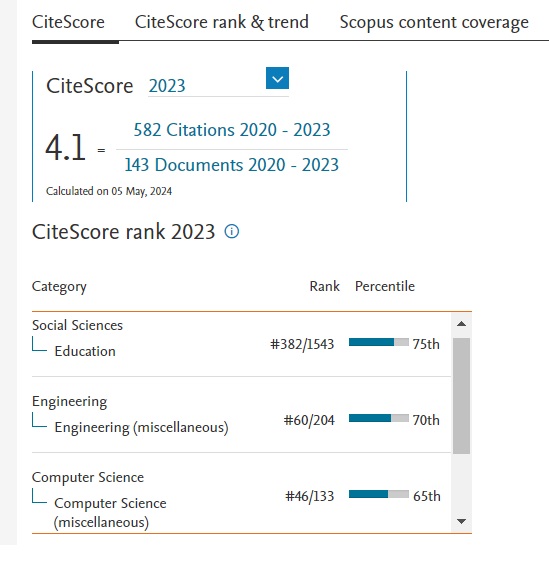Presentation
Resumen
This monograph is presented as a response to an indisputable fact: The use of the social web as a means of communication and a framework of relationship and coexistence between students and teachers. We want to point out the need for a framework of pedagogical model and instructional design for the use of the social web.
We also raise the need for an analysis of the necessary conditions for the validation of their uses.
Finally, we propose to disseminate the analyses based on particular experiences, given the insufficiency of institutional policies that contemplate integration modalities and their consequences.
We see necessary and accept proposals for indicators on quality in social learning environments. As results processed and conclusions obtained from research and experiences.
On the other hand, we are accustomed to a literature that emphasizes the possibilities of intelligent education, and of big data combined with response algorithms to create unique and unprecedented opportunities for academic organizations. Opportunities that promise training with higher standards and innovative approaches.
This issue tries to see what theoretical approaches, practices and experiences are present and available about
(1) learning and teaching strategies: intelligent pedagogy,
(2) highly technological and singular services based on environments of this type, both for local students, on campus, and for remote students, online,
(3) innovative smart classroom configurations with easy local / remote student interaction with teachers and centers. And also for local / remote collaboration between students,
(4) design and development of multimedia-enriched content based on the Web, with interactive presentations, videoconferences, questionnaires and interactive web-based tests that allow instant and intelligent knowledge evaluation
(5) other affordances and managed environments with technology and intelligent response software.
In this monograph we want to accommodate the results of research projects and ongoing experiences.
We will also give space to works that aim to create a taxonomy of intelligent university education and identify its main characteristics and components.
Pierre Lévy and Miguel Zapata-Ros
Descargas
-
Resumen446
-
PDF 116
Las obras que se publican en esta revista están sujetas a los siguientes términos:
1. El Servicio de Publicaciones de la Universidad de Murcia (la editorial) conserva los derechos patrimoniales (copyright) de las obras publicadas, y favorece y permite la reutilización de las mismas bajo la licencia de uso indicada en el punto 2.
2. Las obras se publican en la edición electrónica de la revista bajo una licencia Creative Commons Reconocimiento-NoComercial-SinObraDerivada 3.0 España (texto legal). Se pueden copiar, usar, difundir, transmitir y exponer públicamente, siempre que: i) se cite la autoría y la fuente original de su publicación (revista, editorial y URL de la obra); ii) no se usen para fines comerciales; iii) se mencione la existencia y especificaciones de esta licencia de uso.
3. Condiciones de auto-archivo. Se permite y se anima a los autores a difundir electrónicamente las versiones pre-print (versión antes de ser evaluada) y/o post-print (versión evaluada y aceptada para su publicación) de sus obras antes de su publicación, ya que favorece su circulación y difusión más temprana y con ello un posible aumento en su citación y alcance entre la comunidad académica. Color RoMEO: verde.














